Sustainability
We have received Travelife Partner award as a recognition of our commitment towards social and environmental sustainability for the first time in 2022. In January 2025 our Travelife Partner status has been extended for another two years.
To receive Travelife Partner level a company has to comply with more than 100 criteria, related to office management, product range, international business partners and customer information.
Travelife is a certification system, dedicated to achieving sustainable practices within the tourism industry. It provides companies with realistic sustainability goals, tools and solutions to implement positive change within their businesses and supply chains.
Read more about Travelife here.
Missio
We offer tourists a range of products in harmony with Finnish nature. We are privileged to live and operate in an area where we can still find pristine, unpolluted nature. The air is amongst the cleanest in the world and there is no plastic pollution in our waters. We continuously work in diminishing our business’s environmental impact. We want to be a responsible employer and partner to our numerous subcontractors and stakeholders. We wish our subcontractors and partners to consider their sustainability and environmental footprint. We also encourage clients to make ecologically friendly choices by providing some tips prior to their arrival.
Our targets 2025-2026
We aim to develop the sustainability of our business eg. with the following means:
- 25 % of diesel that is used for work purposes will be renewable diesel.
> Situation:
2023: 25 % / 2024: 24 % / 2025: 35 % - The amount of vegetarian food will be increased so that all groups will have at least two vegetarian lunches and dinners per week. For skiing groups, a vegetarian dinner will only be served on arrival day to ensure sufficient energy intake after a skiing day.
> Situation:
2023: An average of 2 vegetarian lunches per group and 1,5 vegetarian dinners per group. Total approx. 2600 servings.
2024: An average of 2,5 vegetarian lunches per group and 1 vegetarian dinner per group. Total approx. 3200 servings.
2025: An average of 1,9 vegetarian lunches per group and 1,25 vegetarian dinners per group. Total approx. 3250 servings. - 75 % of tea and coffee will be Fairtrade tea and coffee.
> Situation: Fair trade coffee and tea have not been purchased in 2023-25 for logistical reasons and the lack of coordination. - More efficient use of direct international flights
We will further develop airport transfers to ensure that an increasing number of customers can smoothly utilize direct flights to Kuusamo without long waiting times. At the same time, we aim to keep the driven kilometers per customer at the current level (approx. 40 km/customer in 2023 and 2024 and 45 km/customer in 2025) by combining transfers for different groups.During the winter season 2023–24, 38% of international customers arrived via direct flights to Kuusamo Airport, while 2% arrived at Rovaniemi Airport.
In winter 2025 37 % of international customers arrived via direct flights to Kuusamo Airport and 2% at Rovaniemi Airport.
Sustainability policy
Ecological sustainability – minimising the environmental impact
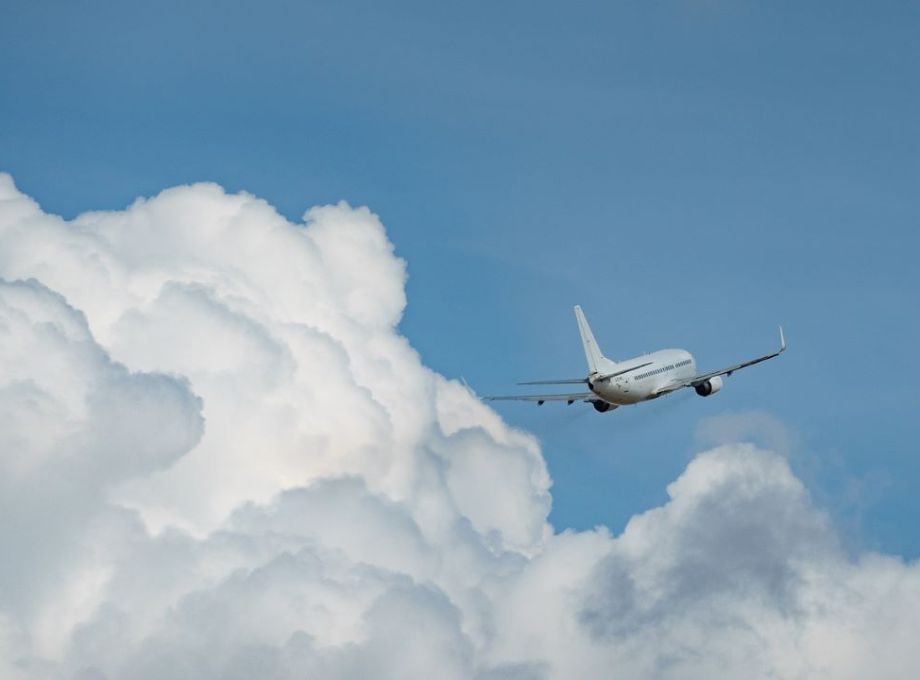
Flights
Flights are not included in our tour programmes. We appreciate most of our overseas clients have a need for international flights and that these are the biggest contributor of carbon emissions related to our tours. Direct charter flights to our area are available only from a few departure airports so we recommend our clients to book direct flights to Helsinki, where a change is necessary. We do give all the relevant information about alternative onward transport from Helsinki by bus and/or train. We also provide information about carbon offset schemes.
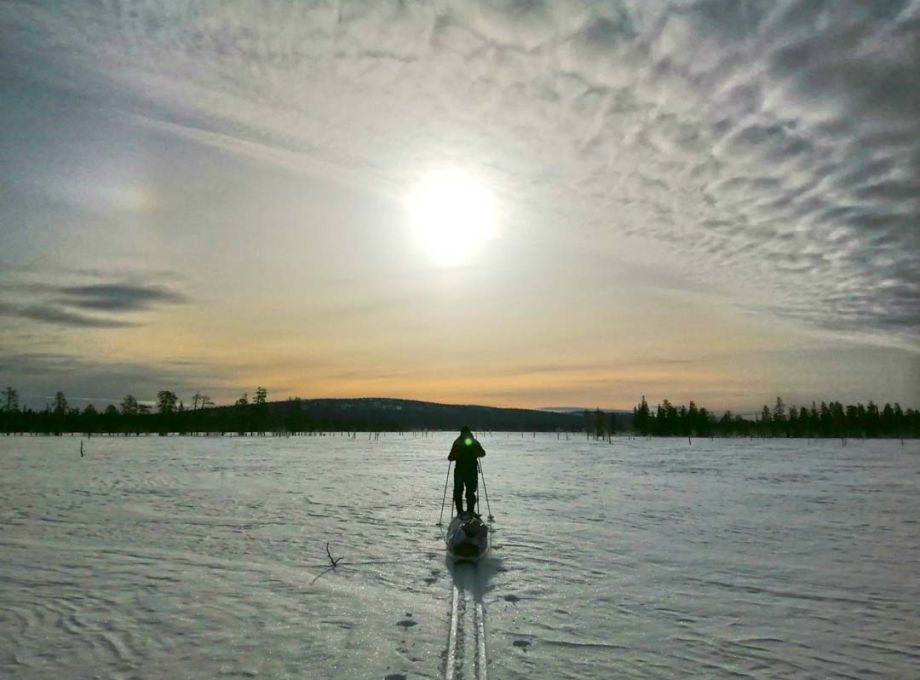
Bus transfers
We buy all transfers from bus companies. For each group the most expedient vehicle is chosen according to the group size. The tour price includes return group transfers from/to the nearest airport. If possible, groups are combined e.g. if there are several groups going to the same destination due to arrive at the same time, they will be transferred in one vehicle. This is factored in when we are scheduling tours, e.g. ski and snowshoeing groups arrive on the same day, thereby enabling shared transfers.

Other transfers
The use of cars is necessary for transportation of luggage, equipment and other – service drives – in the area. Journeys are planned to minimise distances. In winter, electricity is needed to heat the engines. Excess heating is avoided, if necessary, timers are used.
Activities
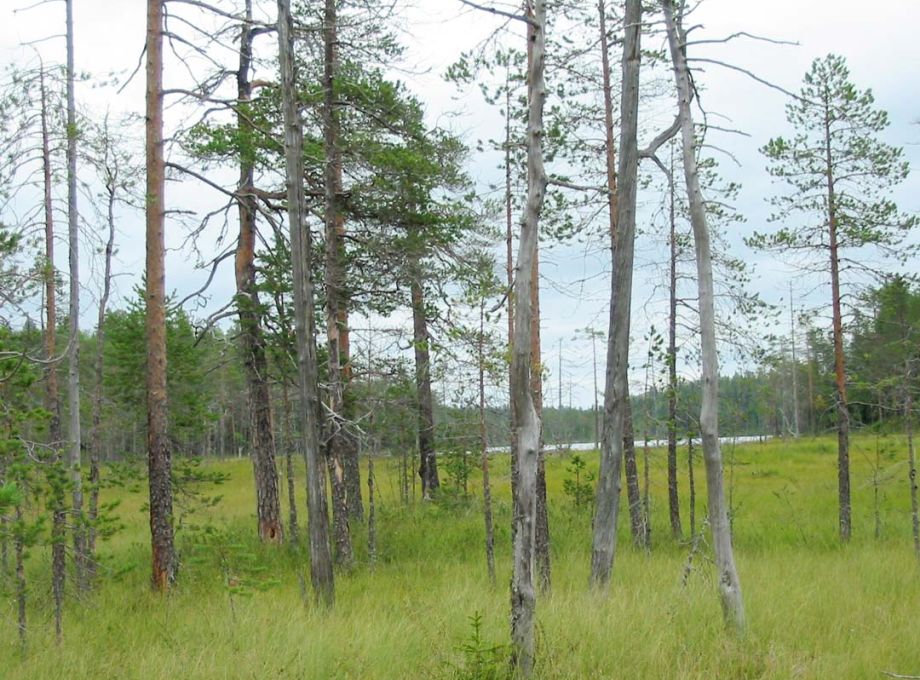
Out and about
We hike, ski, snowshoe, cycle and canoe avoiding unnecessary noise, without disturbing wildlife and leaving no trace. We are specialists in small group tours, a typical group size being 12-16 passengers.
Clients are given information about local environment and culture, seasons, every-mans-rights etc with a focus on regional characteristics. Several of our groups visit prehistoric rock paintings, in which case it is the guide’s responsibility to make sure that everyone knows not to touch the paintings.
When selecting cross-country ski routes, special attention is paid to the terrain to reduce maintenance costs. We ski on Hossa National Park’s maintained tracks as well as on tracks that are made especially for our groups. In summer, we use only marked hiking trails.
Picnic lunches around open fires are an essential part of our tours. We only use official fire places maintained by Metsähallitus (Finnish forest and park services) to whom we pay a set fee per participant. The guide is responsible for not making the fire any bigger than necessary and taking adequate measures for putting out the fire. Open fires are not permitted during forest fire alerts.
Whilst outdoors in the woods, composting toilets are preferred. If these are not available, we ensure not to contaminate water supplies. Paper is buried deep under the soil and when the ground is frozen, it can be burnt.
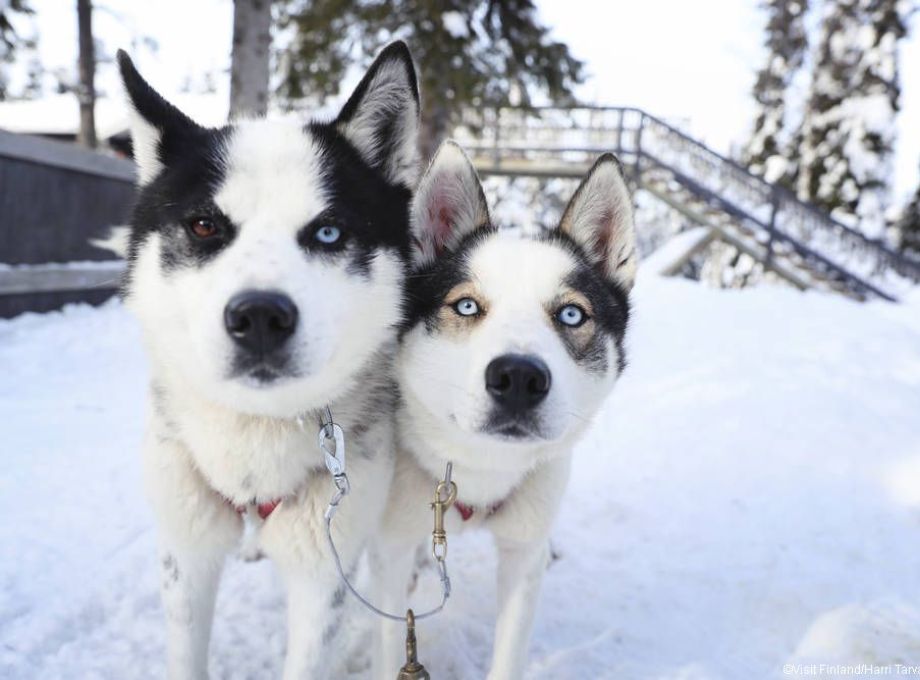
Huskies and reindeer
We buy the vast majority of the husky safaris from our partner who have a Green Activities certificate as proof of responsible operations. The majority of reindeer farm visits take place on farms that host tourists on a small scale. These visits do not include reindeer sleigh rides.
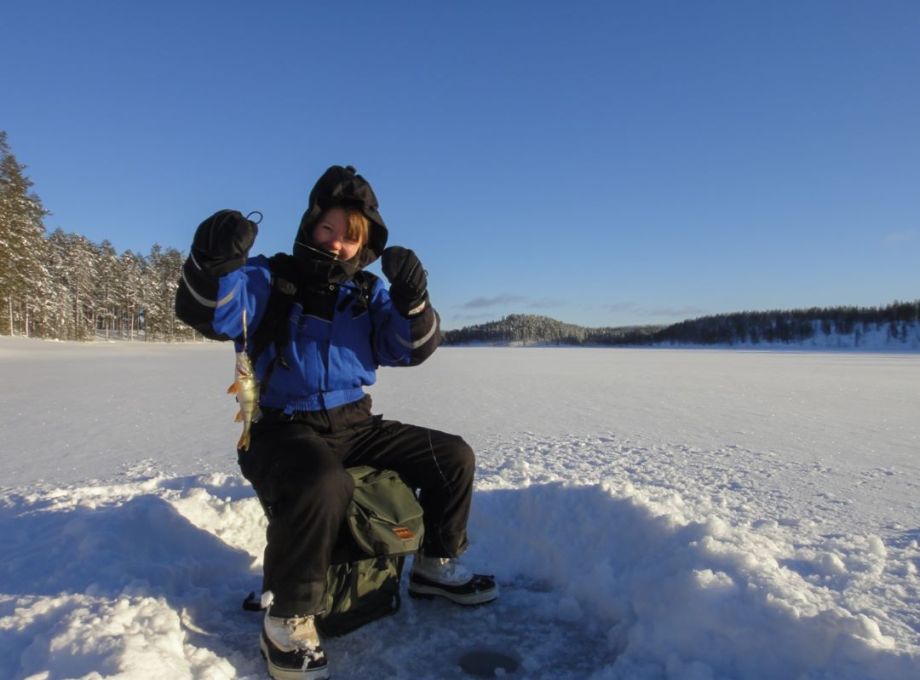
Ice-fishing
We practice catch and release, unless the fish will be prepared as food.
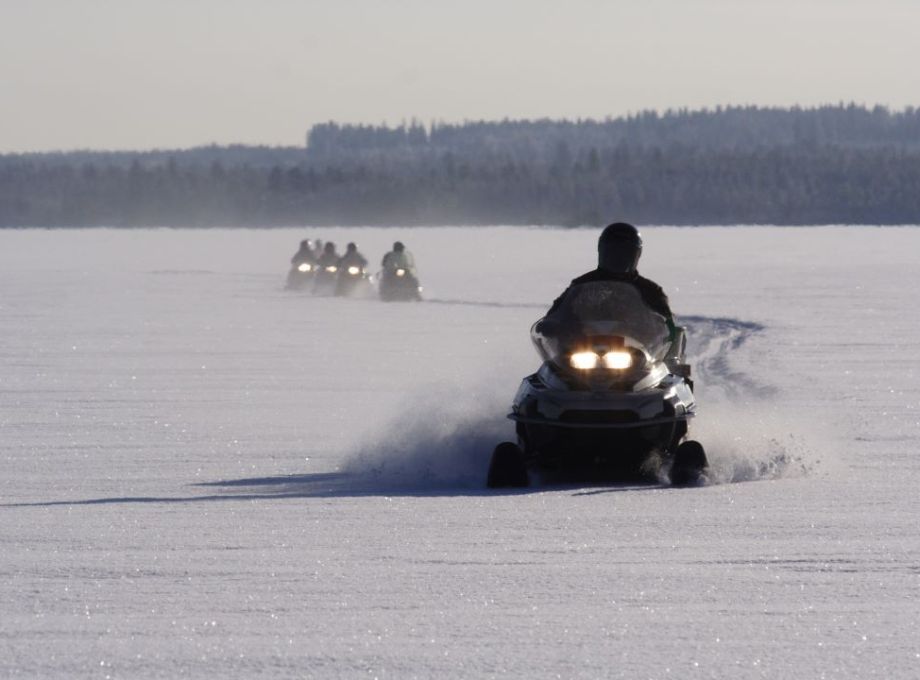
Motorised activities
Our programmes never include motorised activities, e.g. snowmobiles or quad bikes.
Some groups have the option of booking snowmobile safaris for an additional fee. We recommend short safaris of a couple of hours where two people share the sled.
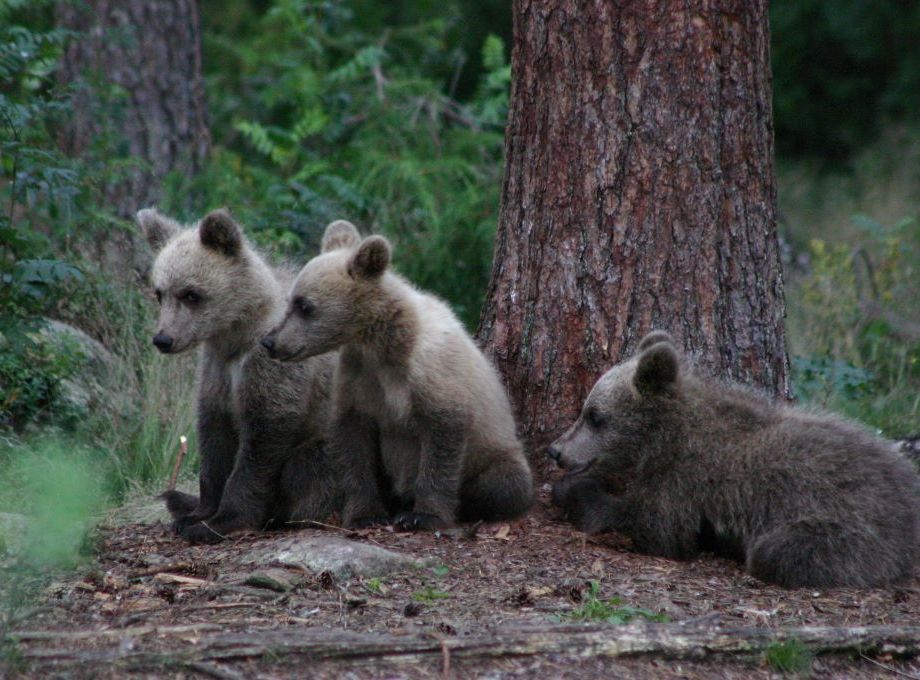
Bear watching
During summer hiking trips our customers can participate in a bear watching and photography excursions for an additional fee, during which it is possible to take photos and watch the animals from a hide. The organizers of the bear watching trips follow the laws and guidelines and carry out the trips in such a way that their effects on the natural ecosystem are minimized, e.g. the bears are only fed during the bear watching season.
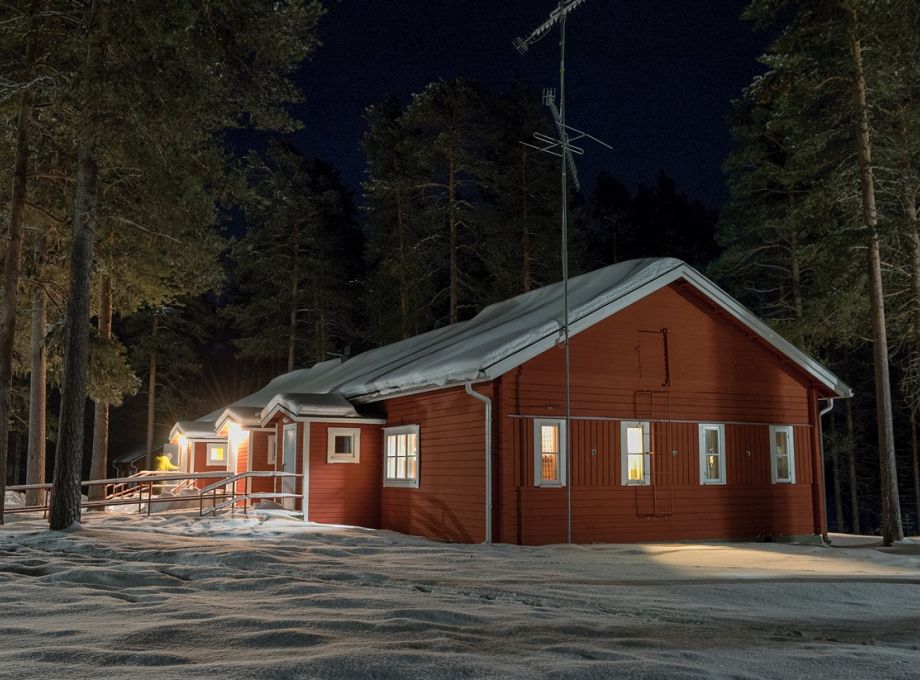
We sub-contract our accommodations and most of our meals. All our accommodation choices offer locally produced food and food from nature (berries, mushroom, game, fish, etc.). It is not unusual to have freshly baked bread made from local grain. There is limited availability of imported fruit.
Ourselves we are in charge of picnics for ski tours, occasionally some other meals. We only purchase Finnish meat, milk products and bread. Wherever possible, for whatever merchandise, Finnish products are always a primary choice. The amount of food is calculated according to the size of the group, therefore minimising the amount of waste. Excess food is always used for the next group or given to the staff. Food waste is composted.
Some of our tours include overnights in wilderness cabins. There is no running water, electricity or central heating. Cabins, as well as saunas, are heated with wood burning stoves. The guide is responsible for not burning more wood than is necessary. There is no waste disposal at the cabins so all discarded waste, except biodegradable, is brought back to base to be recycled.
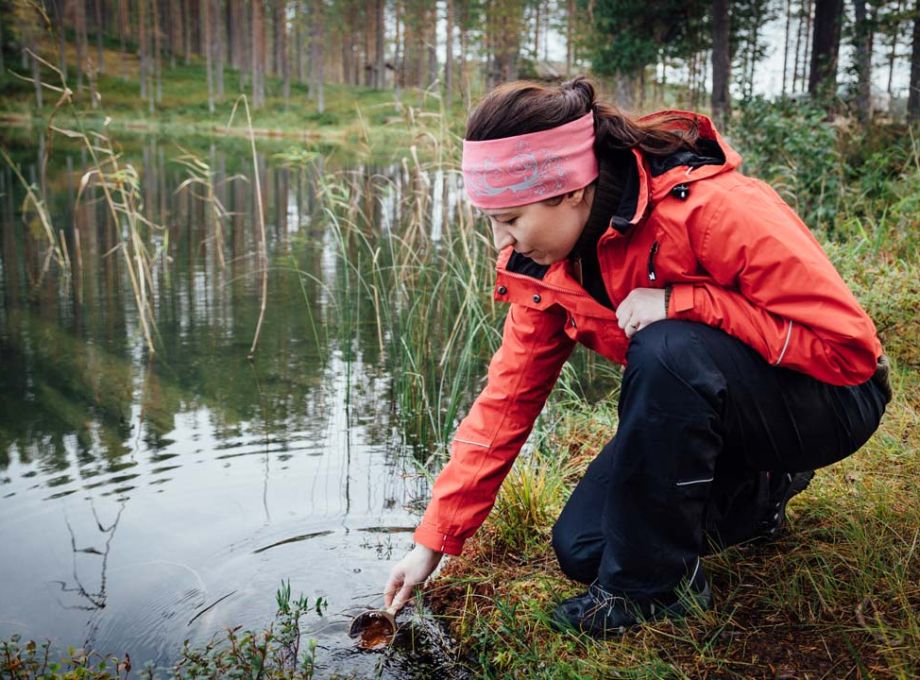
Water
We recommend our fresh tap water for drinking. We advise our clients to bring a reusable drinks bottle which can be refilled daily. Bottled water is not accessible most days. For cooking, only tap water is used.
We encourage everyone to use water sparingly in shower etc. Dishes shouldn’t be washed under the running water. To wilderness huts drinking water is carried in cans and water for washing and dish washing is taken from the lake.
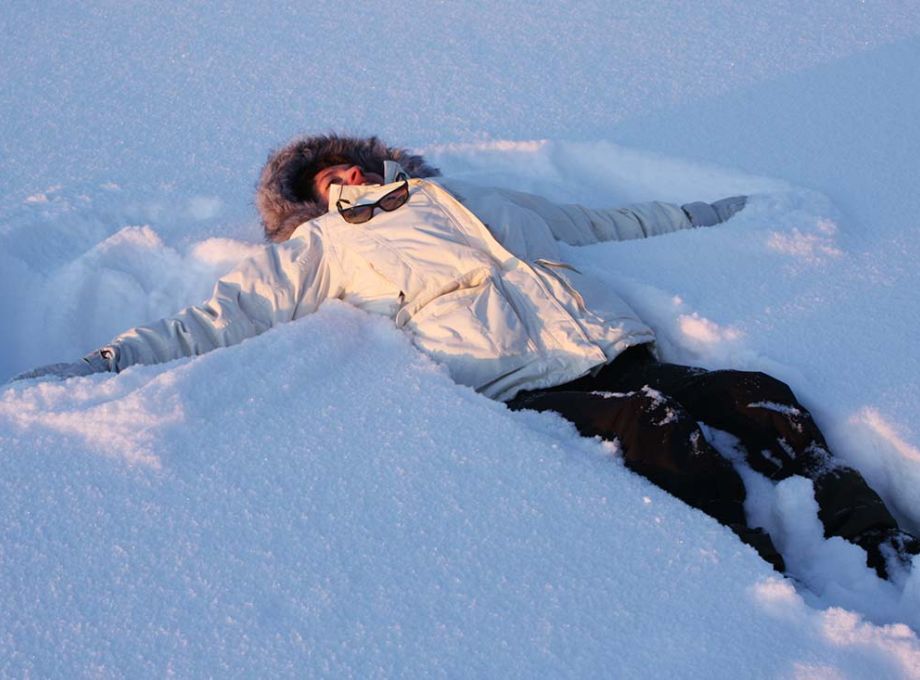
Waste
When shopping, the volume of waste is minimized by ‘bulk’ buying. We almost never buy plastic carrier bags. For our picnic lunches, we use reusable plastic dishes and cutlery. We advise our clients to bring an own lunch box instead of using our paper bags for lunch sandwiches. Disposable plates and cups are only used if it is necessary for some reason.
We abide by a strict environmental, “leave no trace” policy. All litter is removed. Only easily biodegradable waste, such as coffee grounds, are composted or disposed of by means of “distributed composting”. Back at base camp the waste is sorted and recycled (plastic, metal, glass, carton, bottles, batteries, medicines, etc.). We advise our clients to sort and dispose all waste correctly.
Landfill waste in our operations is mainly generated from broken and irreparable equipment. Equipment removed from customer use, but still usable (skis, snowshoes, winter boots) is sold at second-hand markets or flea markets. Unusable textiles (e.g. winter overalls) are delivered to textile recycling collection points. Sheets and towels are donated for reuse.
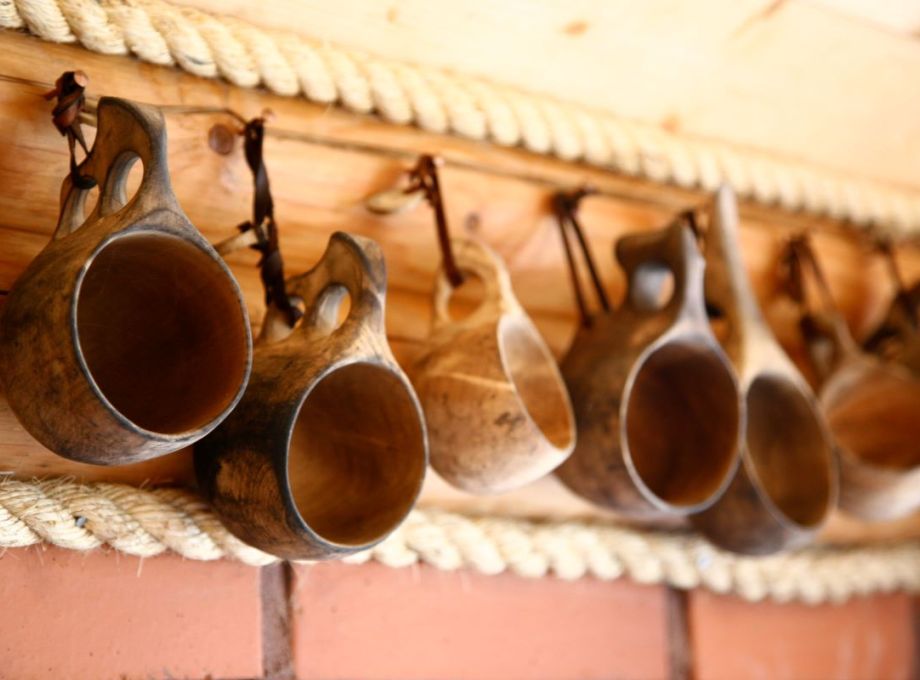
Souvenirs
We do not allow the purchase of souvenirs containing threatened flora and fauna species, any illegally obtained historic/archaeological artefacts, drugs or illegal substances, and abide by local and international laws in place to prevent this.
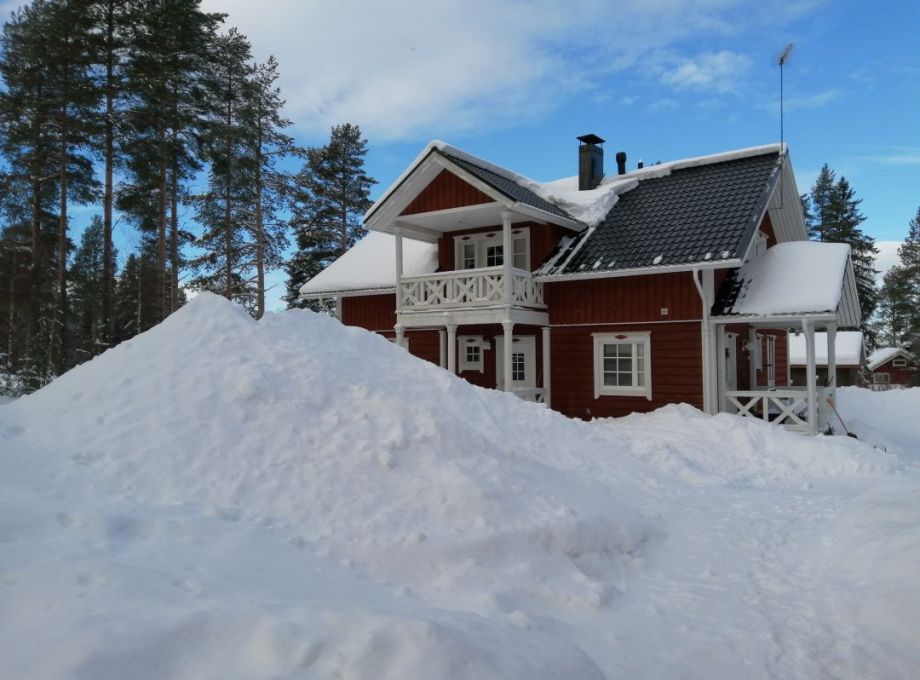
Office
At our small home-office, with two fulltime employees, ecologically sound choices are made throughout daily operations. The office is heated by wood pellets and to save energy the room temperature is adjusted.
We sort all the possible waste, in addition to all things previously mentioned, we recycle all office waste, e.g. inks and bulbs. We use environmentally friendly paper and print only what is necessary, double sided to save paper. All brochures and programmes are online and invoicing is done by email.
Some sheets and towels are washed at our office premises. We use ecolabel detergents and wash only full loads.
ECONOMICAL SUSTAINABILITY – sustainable choices
- We are committed to purchasing locally produced products whenever possible.
- We purchase high-quality, long-lasting products that can be repaired.
- We favour local stores instead of online stores. When some items can’t be bought locally, we endeavour to buy in bulk to minimize transportation and packaging costs.
- Ecolabel and sustainably produced products are favoured.
SOCIO-CULTURAL SUSTAINABILITY – close co-operation locally
- We employ local guides whenever possible. All guides are trained in our sustainability policy and we require them to implement it in their work.
- All our operations are based on the co-operation of a local partner network. We benefit local economies by using small, mostly family-owned accommodations, restaurants, transportation companies, etc that are operating on the remote countryside.
- If a contracted partner has been found to break laws or ethical norms, this may justify termination of the contract without warning.
ETHIC SUSTAINABILITY – fair and equal
- We are fair and flexible partners and we adhere by our contracts.
- We make sure our partner companies and staff get paid fairly.
- We commit to comply with all local laws and official regulations.
- We are committed to the equal treatment of all people, regardless of nationality, religion, language, sexual orientation or any other personal reasons.
- We do not accept the use of forced labour or child labour, children’s sexual exploitation or any other violations of human rights.
- Most of our tours are activity holidays that are not suitable for people with reduced mobility. On request, we will tailor tours for special needs groups if we have enough professionalism for the specific group.
SAFETY – for client’s and personels benefit
- Safety is a main priority throughout the implementation of a tour.
- For each tour, we prepare a safety plan according to official instructions. Guides must study the plan thoroughly prior to a tour.
- All guides need to have a valid first aid certificate (Level 2)
- We will make sure guides have been briefed in detail for the upcoming work, and that they have all the necessary equipment and gear.
10 sustainability tips for your holidays
All human activities impact on the environment. Tourism is no exception. Take small acts for nature’s sake before and during your holidays and easily reduce your holiday’s impact on the environment. Thank you for your co-operation!
Before you travel
If public transport to the airport is available, consider leaving your car at home. It is usually a far cheaper alternative, e.g. no car parking or fuel. Preferably book a direct flight to Helsinki, where a change is necessary unless you are travelling from a few destinations from where it is possible to book a direct flight to Kuusamo. From Helsinki, you can also take a train and/or bus to your destination. If you want, you can offset the emissions of your flight. Most airlines offer that possibility at the time of ticket purchase.
Extra transfers add to your cost and have an impact on the environment.
Pack only what is needed. Extra – just in case – items just weigh you down. Lightening your luggage reduces your carbon footprint as all extra weight adds to your flight’s fuel consumption. However, when travelling in winter, do bring enough warm clothes. Check our gear list for guidance.
For your trip, you may need equipment or clothes that are useless in your normal life. Instead of buying, consider renting, borrowing or buying second hand. You can always advertise on local buy/sell online groups for any equipment/clothes you may be short of.
Bring a reusable drink bottle or thermos with you which can be filled in the morning for the excursion.
Eyes bigger than your belly is a common problem when using a buffet. Try and take only what you are sure you can eat. You can always go back for more as often as you want. Note: Special and vegetarian meals are prepared for those who have booked them prior to tour. The more different meal options are required, the more food waste is usually produced.
Don’t leave taps running. Consider whether you really need two showers a day or if one would be sufficient. To clean the toilet a small rinse is usually enough.